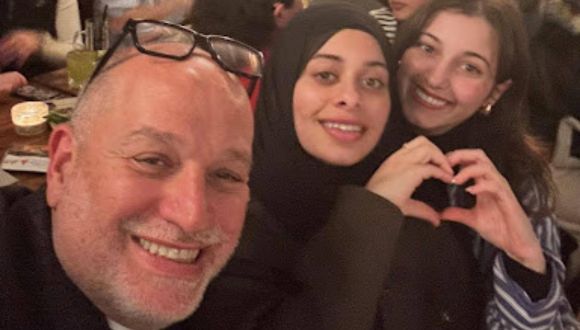Berlin Architecture Workshop Unites Jewish and Arab TAU Students
Written on
Fourth-year students explore architecture together
Every year, Eran Neuman, professor of architecture at Tel Aviv University (TAU), takes the fourth-year students in his design studio to a different world city for an architecture and urban design workshop. This year, the trip almost didn’t happen, however the students had different plans. “I thought the students wouldn’t want to go, especially with everything going on, but it really came from the students,” reflects Neuman. “They said, we want to go – it’s tough times, but it’s important for us and we want to go.”A Week in Berlin
And so, at the beginning of March, and with the support of The Lowy International School, Neuman took 14 of his students with him on a one-week trip to Berlin, where they toured some of the most well-known architecturally designed buildings, went to museum and art exhibits, and met with local architects and architecture offices – including the office of Diébédo Francis Kéré, the famed Burkinabé-German architect and winner of the Pritzker Architecture Prize (often referred to as the Nobel prize for architecture).
Neuman in Berlin with two of the students from the TAU design studio.
However, the trip was also special for an entirely other reason: Neuman’s design studio at TAU is made up of approximately half Arab students and half Jewish students. “For the most part, they work perfectly together; all-in-all they are students who want to come and study,” says Neuman.“They care about getting a good education and they leave politics and what’s going on in the region outside the classroom.”At the same time, with all the heightened tension in the region since October 7, Neuman was still a bit anxious about whether there would be any strain during the Berlin workshop. “You can’t totally avoid the politics, because this is part of our reality,” says Neuman.
A Platform for Coming Together
However, instead of tension, Neuman says he found a group of students – half Arab, half Jewish – who were keen to listen to one another and be open with one another, especially as they grew more relaxed as the trip went on. “When they did talk about politics, they were open and respectful and they acknowledged each other and each other’s suffering,” he says.“We told them, it’s in your hands to make this place livable and they completely accepted it – that there are two nations living here and that we have to learn to live together and next to one another.”On the final day, after dinner at a Vietnamese restaurant, the students even decided to go to a club together, where they asked the DJ to put on Arab and Israeli music.
“They went together with each other, Jewish and Arab, accepting each other’s culture and being together … I came back really optimistic from the workshop.”—Eran Neuman.Gal Wiesman, a fourth-year student who attended the Berlin workshop, agrees. “It was a great trip,” she says.
“I think it was extremely refreshing to go … and during the trip we created a special bond, and it’s made us all closer since then.”—Gal Wiesman.
